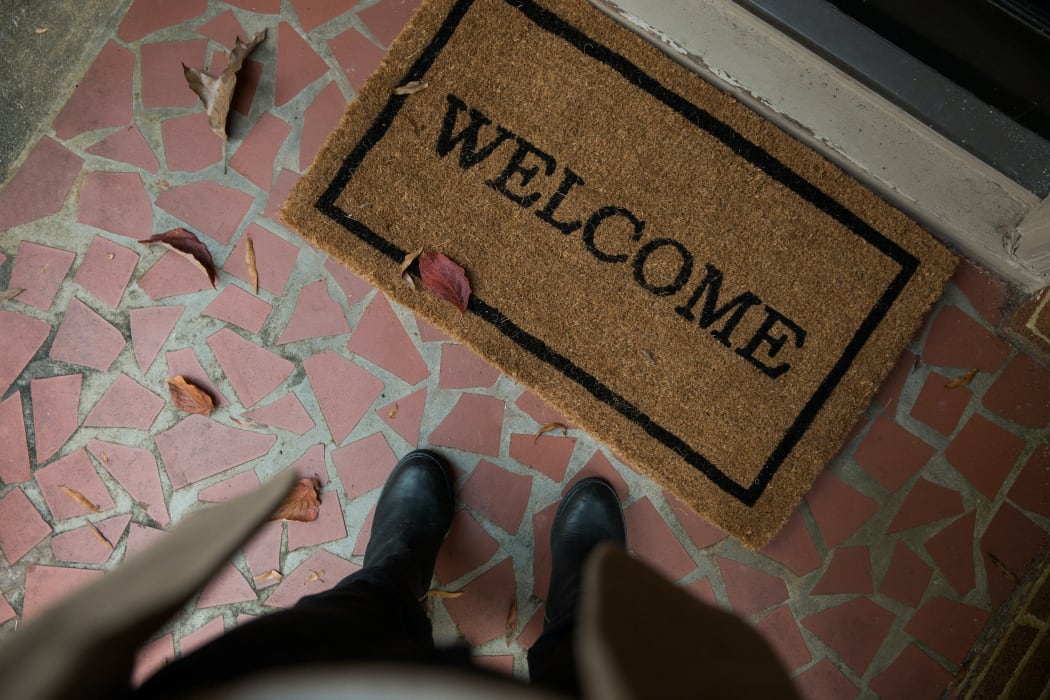New research has shown that wearing shoes inside the house is not only gross, but a real health threat.
Environmental chemists in Australia have spent a decade examining the indoor environment and the contaminants people are exposed to in their own homes.

Photo: Pexels
Their findings? It's best to leave the filth that accumulates on the bottom of your shoes outside the house - for myriad reasons.
Professor Mark Taylor is Victoria's Chief Environmental Scientist at EPA Victoria. He explains why you should always be taking your shoes off before going inside.
Even with dog owners being more vigilant these days, you are still bringing all sorts of nasties into the house on the soles of your shoes, he says.
“Even if you're not having to sit at the door, or in the garden and pick out dog poo from the crevices of your soles, that doesn't mean to say it's not there.”
E.coli microbes are smaller than the eye can see, he says.
“So, you can still be tramping in even if the shoes look clean.”
And it’s not just pathogens associated with dog poo, he says.
“You can traipse in chemicals that are being used for spraying lawns, glyphosate for spraying weed, it could be trace metals.”
These can then accumulate, Taylor says
“We spend more of our time in the home than we do outside, and these genes and pathogens have the potential to accumulate and present a risk of harm.
“It doesn't cost anything to leave your shoes outside and you can buy an outdoor mat and an indoor mat as long as you clean those regularly, they're very effective at reducing the burden, but the most effective thing is leave your shoes outside.”
Regular vacuuming is effective for keeping the build-up of pathogens and chemicals at bay, he says.
“We looked at microplastics in Sydney homes and we showed that those who vacuum more frequently the burden of microplastics in dust In the home was reduced.”
The amount of filth we transfer from outside to in can be seen from carpet cleaning water, he says.
“Have you ever cleaned a carpet or a rug? You start off with nice, clean water. And what's the colour of that water when you're finished? Even if we vacuum regularly it’s dark grey.”
The study looked at 35 countries including New Zealand.
“The New Zealand data was very clear, there was elevated levels of arsenic in New Zealand homes. And we think the source of it to be one natural from a volcanic activity.
“And the second one was, we know that Kiwis do burn wood in the home and it generates a burden of arsenic. And we know that many homes in New Zealand are made of timber, and many of those are older homes and those homes will be painted with lead-based paint if they're older than 1970.
“We know that when people renovate those homes, it will generate lead dust in inside their houses.”
Children's blood lead has been elevated in New Zealand when they're home during a renovation, he says.
Pets are another reason for diligence with the vacuum cleaner, he says.
“When did you last see a dog wipe its bottom? It's all pretty gross. We used to have dogs, Jack Russells, and if they found something that was dead, they couldn't wait to roll in it, they just loved it. And so, they will be bringing that in into the house.”
Pets come into where we eat and sleep, he says.
“People having dogs in the bed, dogs in places where you may be eating, even on the sofa because people are often eating and drinking on the sofa, you just increasing the potential for the transference of pathogens. But that's people's personal choice.”
Inevitably we are exposed to much of this when we are outside, that doesn’t mean we want it in our houses, he says.
“We know that about 96 percent of shoes have faecal coliforms and some pathogens such as E.coli …these are not diseases that are necessarily going to kill us, they're gonna make us sick. And what we're advocating is a preventative approach to limit that unnecessary exposure.”

